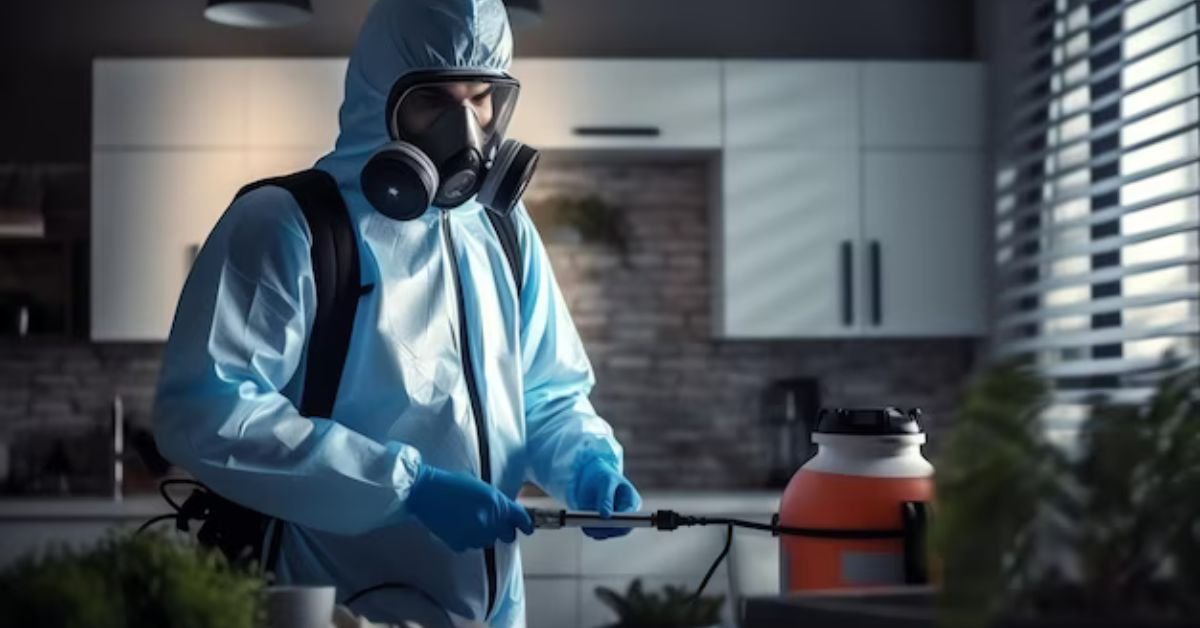Living in a rental property in San Francisco can come with its unique challenges, especially when it comes to dealing with pests. Whether you’re battling ants, rodents, cockroaches, or bedbugs, it’s essential to understand your rights as a tenant and know when and how to call pest control. The responsibility for managing pest problems in rental properties often falls on the landlord, but there are specific situations where tenants may need to take action. In this article, we’ll explore when renters can call pest control, the laws governing pest control responsibilities in San Francisco, and steps tenants can take to prevent and address infestations.
Who is Responsible for Pest Control in a Rental Property?
In San Francisco, the landlord is typically responsible for maintaining the rental property in a habitable condition, which includes addressing pest infestations. California law, specifically under the Implied Warranty of Habitability, requires that rental units be safe, clean, and fit for occupancy. This includes being free from pests that could threaten the health or safety of the tenants.
Landlord’s Responsibilities
Under California Civil Code Section 1941.1, landlords must ensure that their rental properties meet basic living standards, which include:
- Proper sanitation to prevent infestations of insects, rodents, and other pests.
- Structural maintenance to keep pests from entering the property (i.e., fixing cracks, sealing windows, and maintaining the roof).
- Regular pest control services to address ongoing or recurring infestations.
If an infestation occurs, the landlord must take prompt action to resolve the issue. They are required to hire professional pest control services to handle more significant problems, especially if pests are affecting multiple units or the entire building. Failure to address a pest issue in a timely manner can result in violations of local health and safety codes, making the landlord liable for fines or legal actions.
Tenant’s Responsibilities
While landlords are responsible for the overall condition of the property, tenants have a role to play in preventing infestations. Tenants are expected to keep their rental units clean and sanitary to avoid attracting pests. This includes:
- Properly storing food to prevent attracting insects or rodents.
- Regularly disposing of trash in sealed containers.
- Reporting any pest problems to the landlord as soon as they notice an issue.
In situations where the tenant’s actions contribute to the infestation (such as leaving out food or improperly disposing of garbage), the tenant may be held responsible for the cost of pest control.
When Can Tenants Call Pest Control?
While landlords generally handle pest control, there are situations where tenants may need to call pest control on their own. However, this should only be done after notifying the landlord and allowing them an opportunity to address the issue. Here’s when it might be necessary for a tenant to call pest control:
1. The Landlord Fails to Address the Issue
If you’ve reported a pest problem to your landlord, but they fail to take action within a reasonable time, you may have the right to call pest control yourself. Under California law, landlords are expected to address habitability issues promptly. If they neglect their duty, you may be able to:
- Hire a licensed pest control company to fix the problem and deduct the cost from your rent (commonly known as “repair and deduct”).
- File a complaint with the San Francisco Department of Public Health or San Francisco Rent Board to compel the landlord to take action.
- Withhold rent until the issue is resolved (but this should be done carefully, with legal guidance, to avoid eviction).
It’s essential to document the problem by taking photos, videos, and keeping records of all communications with your landlord. This documentation can protect you if the situation escalates into a legal dispute.
2. Emergency Situations
In cases of severe infestations that pose an immediate threat to health and safety, tenants may need to take matters into their own hands by calling pest control. For instance, if you discover a large infestation of rats, bedbugs, or cockroaches that could lead to illness or injury, you may need immediate intervention. After contacting pest control, you should notify your landlord and provide them with receipts for the services.
Keep in mind that calling pest control on your own may only be appropriate for extreme cases, and you should follow up with legal advice if you need to deduct the cost from your rent or take further action.
Legal Protections for Renters in San Francisco
San Francisco has some of the strongest tenant protections in the country, and this extends to matters of pest control. Several legal resources are available to tenants dealing with uninhabitable conditions caused by pests:
1. The San Francisco Rent Board
The San Francisco Rent Board enforces rent control and tenant protections in the city. If your landlord refuses to address pest problems, you can file a complaint with the Rent Board, which will investigate your case. If the investigation finds that your unit is uninhabitable due to pests, the Rent Board can force the landlord to make repairs and even provide rent reductions.
2. Implied Warranty of Habitability
California’s Implied Warranty of Habitability ensures that all rental units must meet basic living standards. Pests like bedbugs, cockroaches, or rodents can render a unit uninhabitable if left unchecked. Tenants are entitled to safe living conditions, and if landlords fail to meet this standard, tenants have the right to withhold rent, move out without penalty, or sue for damages.
3. Rent Withholding and Repair-and-Deduct
Under California law, tenants have the right to withhold rent or use repair-and-deduct if their landlord fails to resolve habitability issues. To do this, tenants must notify their landlord of the problem, allow a reasonable amount of time for them to fix it, and provide a written record of the situation.
Rent withholding should only be used in cases where the pest infestation makes the unit unlivable, and you should consult a lawyer or tenant rights organization before withholding rent to avoid the risk of eviction.
How to Prevent Pest Problems in Your Rental Unit
While landlords are responsible for addressing pest infestations, tenants can take steps to reduce the risk of pest problems in their rental unit. Here are some preventive measures you can take:
1. Keep Your Unit Clean
Pests are often attracted to food, moisture, and clutter. By keeping your rental unit clean and organized, you can significantly reduce the chances of an infestation. Regularly clean surfaces, sweep the floors, and store food in sealed containers to prevent attracting insects or rodents.
2. Proper Trash Disposal
Make sure to dispose of your trash regularly and use sealed containers to prevent pests from accessing food scraps. Many pests, such as cockroaches and rats, thrive in areas with easy access to garbage.
3. Report Leaks and Damage
Leaks and structural damage can provide entry points and water sources for pests. If you notice any leaks, cracks, or holes in your walls or windows, report them to your landlord immediately. Addressing these issues quickly can prevent pests from entering your unit.
What to Do if Your Landlord Refuses to Help
If your landlord refuses to address pest problems, it’s crucial to take action promptly. Here’s what you should do:
1. Document Everything
Keep a detailed record of the infestation, including photos and videos of the pests, any damage they’ve caused, and your communications with the landlord. This documentation will be vital if you need to escalate the issue.
2. File a Complaint
If your landlord refuses to address the issue after you’ve reported it, file a complaint with the San Francisco Department of Public Health. They can inspect your unit and force the landlord to take action if your rental property violates health codes.
3. Seek Legal Advice
If the pest problem persists and your landlord remains uncooperative, consider seeking legal advice. Tenant rights organizations, such as the San Francisco Tenants Union, offer free or low-cost legal assistance to help renters navigate these situations.
Conclusion
As a renter in San Francisco, you have the right to live in a pest-free environment. While landlords are generally responsible for handling pest control, tenants also have responsibilities and rights when it comes to addressing infestations. By understanding the laws, taking preventive measures, and knowing when to call pest control, you can ensure your rental unit remains a safe and healthy place to live. If your landlord fails to act, don’t hesitate to take the necessary legal steps to protect your rights and well-being.











